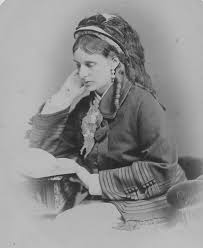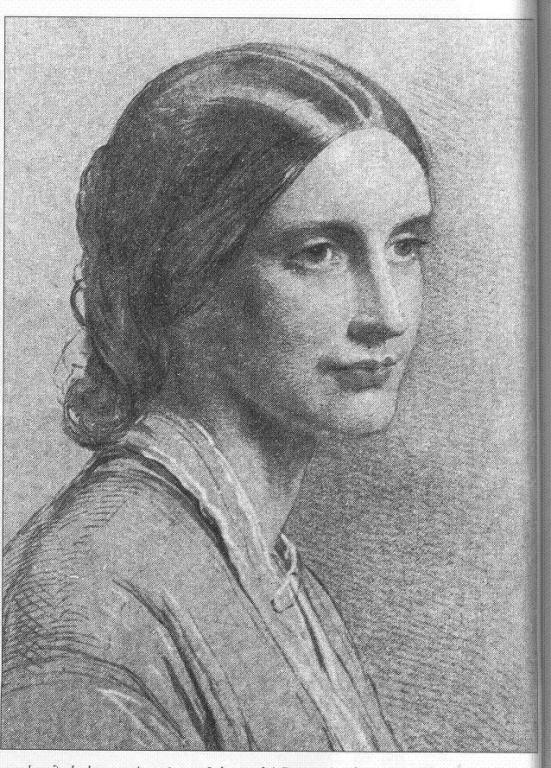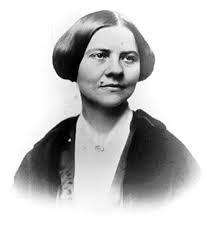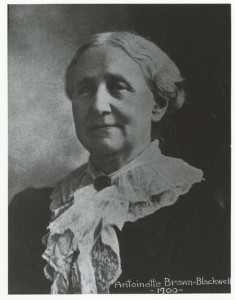Our People must also learn to engage in good deeds to meet pressing needs, so that they will not be unfruitful. (The Apostle Paul in his letter to Titus, chapter 3, verse 14)
One person whose life was certainly far from unfruitful was Josephine Butler (1828-1906).
History has forgotten Josephine Grey Butler but many thousands today should be thankful that she worked hard to improve the lives of women in the late nineteenth century.
Josephine was the daughter of John Grey a cousin to the famous Earl Grey. She grew up in a wealthy household. John Grey was a strong advocate for social reform. He was an unusual father in Victorian England. He believed in education for his daughters. Josephine absorbed her strong religious and moral principles from her father.
At the age of seventeen Josephine became a committed Christian after struggling to understand why God allows suffering. Later she would see this period in her life as God’s preparation for the work that He had for her.
Like other young women in her comfortable station in life, Josephine spent her time horse riding and going to parties and balls with her sister. She enjoyed discussing politics with her father at home but had no thought of pursuing her political interests until later in life when she would learn of the unjust laws that were enslaving women and fight to help women have a better life.
Josephine married George Butler in 1852. He lectured at Durham University and was soon ordained as an Anglican minister. They moved to Oxford where he obtained a position at Oxford University.
Later they moved to Cheltenham. George and Josephine had four children. The tragic death of Josephine’s youngest child and only daughter left her paralyzed with grief. Eva died at the age of six from a fall down the stairs. Cheltenham then had such bitter memories that the couple moved again.
George was offered the job as a principle of Liverpool College in 1866 and so they moved there. Liverpool was a huge seaport. There were many brothels there to service the sailors. Liverpool had the reputation in England of being the most immoral city in the country.
In the meantime, Josephine decided to throw herself into charity work to overcome her grief. She joined a Christian mission to the Brownlow Hill Workhouse in Liverpool. Many of the female inmates were former prostitutes. Josephine had compassion for these unfortunate women and began to show the same kind of love and care for them as the Lord Jesus did. She starting inviting the sick and starving women into her own home. She also went around asking businesses for money to buy a house for a women’s refuge so they did not need to return to the brothels.
Of course, the women needed some other way to make a living besides prostitution so Josephine set up a workshop where the women could make and sell envelopes. This enabled them to meet the expenses of their stay in the refuge.
Josephine quickly realized that girls from poor families were at a disadvantage. She began to support a campaign for better education for girls. In 1867 the North of England Council for Promoting the Higher Education of Women was initiated. Josephine became the first President. For six years she helped to organize public lectures. Several of her accomplishments were:
- A pamphlet called ‘Education and the Employment of Women” (1868)
- Cambridge University began to admit women in 1869.
- A work was published, “Woman’s Work and Woman’s Culture” (1869) Josephine advocated not only for education for poor women, but for property rights for married women and for the right to vote.
Unlike modern liberal feminists, Josephine did not see men as the enemy. She herself was happily married to a good man who supported her efforts in all that she did in spite of the fact that he was warned that her activities would damage his career as a minister.
Josephine merely wanted more harmony between the sexes:
“I wish it were felt that women who are laboring especially for women are not one-sided or selfish. We are human first; women secondarily. We care abut the evils affecting women most of all because they react upon the whole of society, and abstract from the common good. Women are not men’s rivals, but their helpers. There can be no antagonism that is not injurious to both.” (From her 1869 book.)
Soon after her works were published Josephine received a request to help with a national law that was very damaging to women.
Parliament had passed the Contagious Diseases Act (CDA) in 1864. It was in response to the amount of venereal diseases that were spreading in the British army and navy. The idea of the CDA was to regulate prostitution in order to protect the men. In 1866 and 1869 further acts were passed strengthening the regulation of prostitution and making some things worse for the women.
In effect what happened was that the sex trade was legalized. Any women living near a port town such as Liverpool were to register and to go through internal examinations at any time that an official asked them to.
What the CDA’s really amounted to were a pass for the men. Men were not asked to change their immoral behavior. Instead, women’s rights were violated. A woman who looked suspicious to a policeman could be sent for an examination. She was guilty until proven innocent. These exams were painful and humiliating. If a woman did have VD she was forcibly sent to a special hospital for up to three months (9 months in the 1869 Act) until she was cured. Refusal to cooperate was punishable by imprisonment.
Abuses were rampant. Josephine found that many innocent women and children were being arrested on the whims of corrupt police officers. Once branded as a prostitute, guilty or not, these women’s reputations were ruined. Now only a life of prostitution was open to them.
Josephine realized that battling the unjust laws was her God-given calling and she went to work to help these women. She now knew that God had allowed her to suffer so that she could sympathize with these women and girls. Josephine would need all of the courage that the Holy Spirit could give her for the task ahead.
 Imagine living in Victorian England and speaking on these subjects. People were afraid to speak about such things behind closed doors let alone in public. But Josephine withstood ridicule and slander, heckling and harassing as she spoke publicly against the CDA’s. She was pelted with dung as she walked through the streets. Once a mob threatened to burn down the hotel where she was staying. Her compassion for justice enabled her to press ahead.
Imagine living in Victorian England and speaking on these subjects. People were afraid to speak about such things behind closed doors let alone in public. But Josephine withstood ridicule and slander, heckling and harassing as she spoke publicly against the CDA’s. She was pelted with dung as she walked through the streets. Once a mob threatened to burn down the hotel where she was staying. Her compassion for justice enabled her to press ahead.
In 1870 Josephine became the head of the Ladies National Association for the Repeal of he Contagious Diseases Act. She emphasized the gender discrimination inherent in the CDA’s. She pointed out that it was unjust to punish the victims of vice and leave unpunished the sex who are the means and cause of the vice and the diseases that went with it. By legalizing the sin of sexual immorality men got off the hook. Women became the slaves to this evil institution. (This is not very different from modern human trafficking.)
Furthermore, Josephine warned that if Parliament could get away with violating the rights of female citizens, no one’s rights could be protected.
Finally, in 1886 after many years of toil, the Contagious Diseases Acts were repealed. Looking back Josephine could see the hand of God in the victory.
In 1890 after battling a long illness, George died. Josephine cared for him through his illness though she was in poor health herself.
Josephine settled in London. She wrote a biography of George, also a “Life of St. Catherine of Siena” (1898), and various tracts and her own memoirs.
In her later years Josephine moved in with her son George at his estate at Galewood in Northumberland. On Sunday December 30, 1906 she died.
Josephine Butler had tremendous faith in God’s goodness and love. She was strong and followed her Savior in His love for the poor and the downtrodden and those who were shunned by society. Like Jesus, she looked past their shame and into their hearts. Josephine saw women as humans made in the image of God. Josephine “walked the walk” of love and compassion. I pray that many will follow her example today.



